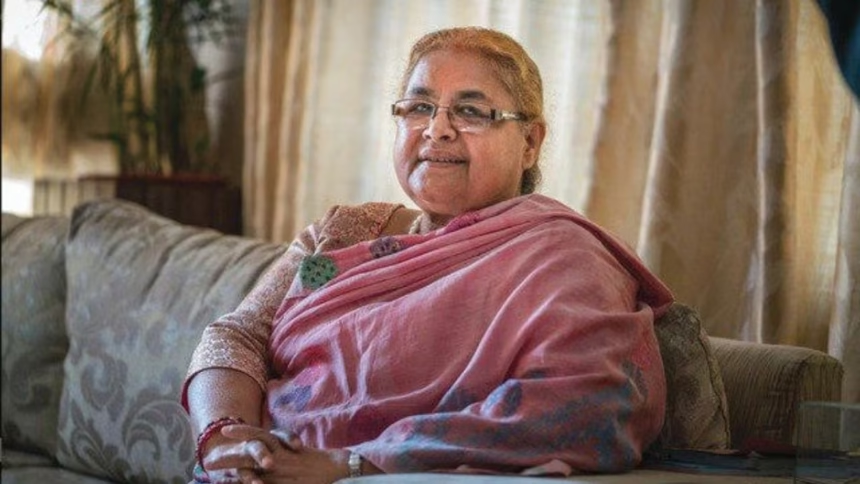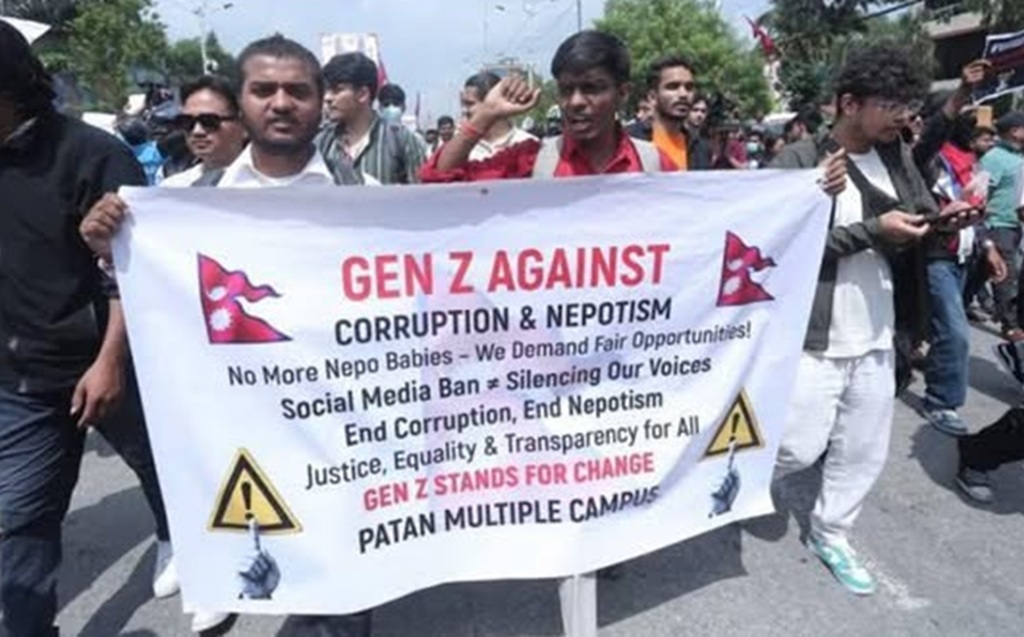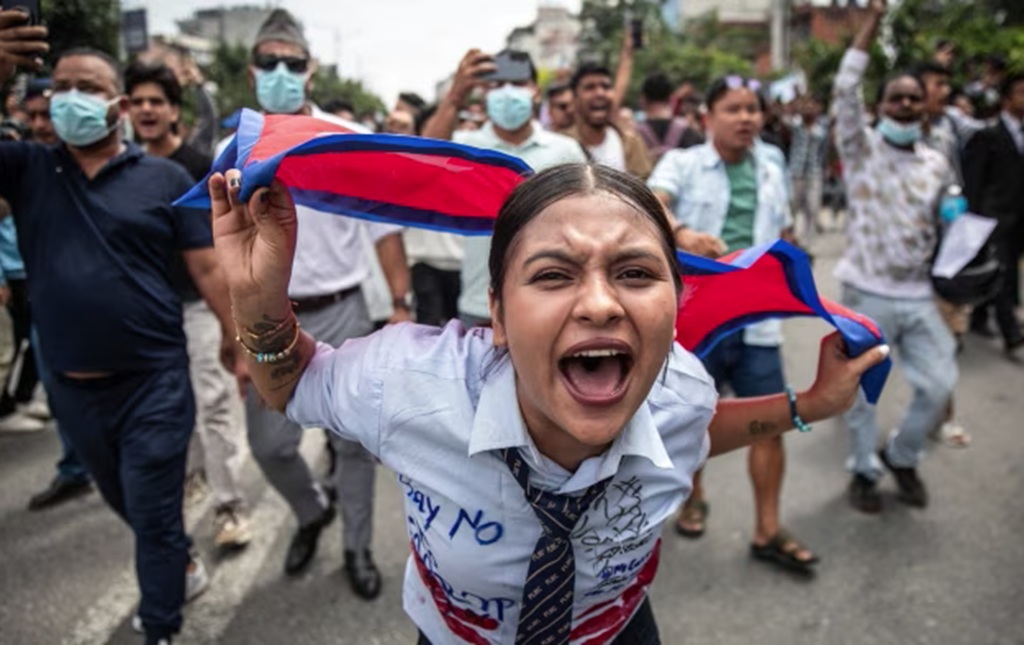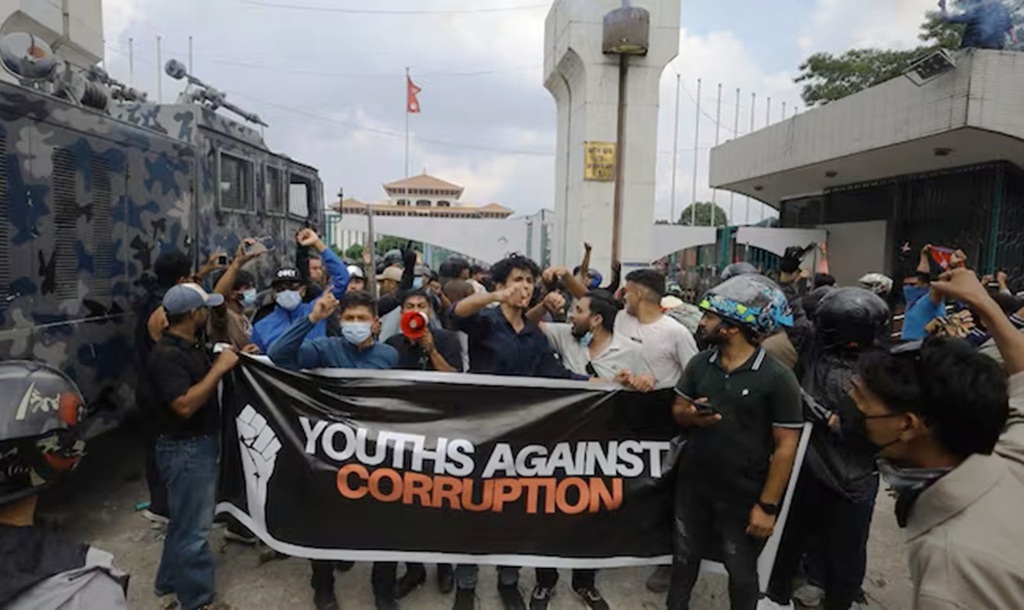KATHMANDU – Nepal has entered a new chapter after President Ram Chandra Paudel named Sushila Karki, a former Supreme Court Chief Justice, as the interim prime minister. Karki, the first woman to lead Nepal’s government, takes the position after a major youth-led protest forced the resignation of KP Sharma Oli.
The appointment, broadcast live by state television from the presidential residence on 12 September 2025, follows a week of intense unrest and tragic clashes. Nepal now faces fresh calls for major reforms and accountability following some of its most serious street violence in years.
Sushila Karki, 73, is respected for her honesty and strong legal experience. Born in Biratnagar on 7 June 1952, Karki earned a Bachelor of Arts in 1972 from Mahendra Morang Campus, then a master’s degree in political science at Banaras Hindu University three years later, and a law degree from Tribhuvan University in 1978.
She started work as an advocate in Biratnagar in 1979, then taught as an assistant professor at Mahendra Multiple Campus in Dharan. She became a senior advocate by 2007, advanced to ad-hoc Supreme Court justice in 2009, and made history as Nepal’s first female Chief Justice from 2016 to 2017.
Karki’s time in the judiciary is remembered for its firm stance against corruption, an issue that has hurt Nepal for decades. In 2012, she helped convict a sitting minister for corruption, a legal first in the country.
When the government tried to install a politically favoured police chief in 2017, Karki overturned the decision; the ruling parties then began impeachment proceedings against her, sparking widespread criticism.
The motion failed, and Karki’s reputation as an impartial, non-political figure grew. For young protesters weary of long-standing political alliances, her clean record stood out.
Gen-Z Voices Drive Protest after Social Media Shutdown
Protests erupted on 8 September 2025 after the government cut access to 26 social media apps, like Facebook, Instagram, WhatsApp, YouTube, and X. The ban, announced by the Ministry of Communication and Information Technology due to missed registration deadlines, was described as a move to stop fake news.
Many saw it as an effort to squash viral campaigns shining a spotlight on politicians’ lavish lifestyles and those of their children, often labelled “nepo kids”. Hashtags like #NepoKids and #PoliticiansNepoBabyNepal spread quickly online, exposing deep divides in a country where youth unemployment sits at 20 percent and many young people work overseas.
This abrupt shutdown hit hard, cutting off millions of Nepalis from family and friends, including about two million migrant workers who relied on WhatsApp for contact. It also disrupted students and businesses. Gen-Z (ages 13 to 28) led the new wave of resistance.
Raksha Bam, a 26-year-old protester, summed up the general feeling: corruption reaches every corner of the country and must be stopped. For many, the social media ban was less about online content and more about blocking public debate over years of political wrongdoing.
Marches and Chaos Escalate to National Crisis
Initially, the protests took place peacefully in Maitighar, Kathmandu, as well as cities like Pokhara, Itahari, and Damak. But things changed fast. On 8 September, school students joined thousands of others in front of the federal parliament.
Police used tear gas, water cannon, rubber bullets, and what Amnesty International says was live fire. At least 19 protesters died that day. By Friday, the total had risen to 51, including an Indian woman from Ghaziabad and three police officers. Over 1,300 people needed treatment for injuries, resulting in urgent appeals for blood donors.
The next day, tensions erupted again as crowds ignored curfews, storming major buildings like the parliament, the Supreme Court, and the Singha Durbar palace. Politicians’ homes, including those of Sher Bahadur Deuba and KP Sharma Oli, were targeted and set on fire.
What began as an action against the social media ban soon became an uprising against years of corruption, family connections, and economic problems. Naresh Rawal, 27, spoke for many: leaders drive expensive cars and own luxury items while regular people struggle to pay their bills.
“Nepo kids” became a common insult, describing the children of politicians seen flashing luxury cars, costly watches, and international travel while the majority of the country lives with hardship.
TikTok, mostly unaffected by the ban, became a platform for millions of young people to share clips of public figures like Sayuj Parajuli (ex-Chief Justice Gopal Parajuli’s son) and Saugat Thapa (son of a law minister), enjoying privileges that most Nepalis will never see.
Binu KC, a 19-year-old student, said it clearly: these elites live off public money while so many remain out of work. Remittances provide around a third of Nepal’s GDP, showing the importance of overseas labour for survival.
Oli Resigns as Nepal’s Prime Minister
With violence spiralling, including the evacuation of ministers and the parliament building catching fire, KP Sharma Oli resigned on 9 September. The government lifted the controversial social media ban later that night, but protests kept spreading.
Demonstrators called for justice for those killed, and for a complete change in the way the country is run. In response, the Nepali army enforced strict curfews, allowing short breaks so residents could buy food or medicine, while soldiers guarded city streets. After a day’s closure due to the violence, Kathmandu’s international airport reopened, but the sense of fear and anger remained.
Gen-Z protest leaders, though loosely organized, selected representatives to meet with the president and army officials. After a four-hour group chat on Discord, they picked Sushila Karki as their preferred prime minister. They hoped her lack of political ties and tough record against corruption would help calm the country. Yet Karki’s appointment faces obstacles, as she does not hold a seat in parliament.
The president has dissolved parliament and set elections for 5 March 2026, raising concerns about how stable things will remain until then. Not everyone backs the move; former Education Minister Raghuji Panta, for instance, whose home was burned, calls it a step backward. Others, like Anjali Sah, 24, see this as a new beginning.
Karki’s team is expected to take shape soon and must move quickly. They will need to restore peace, rebuild destroyed infrastructure, and address public demands for open investigations into protest deaths and cases of corruption under the previous government.
Protesters want full accountability. Tanuja Pandey, a 24-year-old activist, said, “This isn’t just the loss of 19 lives. These are murders.” Karki’s strong legal background gives many people hope, though her lack of political experience and the absence of a clear ruling majority could make things tough.
Nepal now stands at a turning point. Karki’s leadership is a victory for the Gen-Z movement pushing for change. Her time as interim prime minister will test whether the country can break free from corruption and create a fairer future for all. The world is watching to see if Nepal’s youth can help shape the country’s next steps.

















